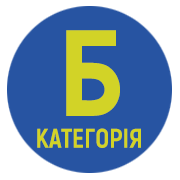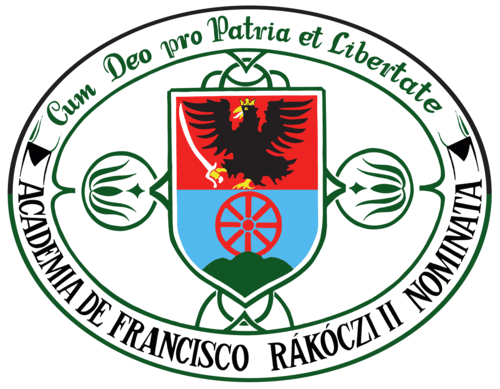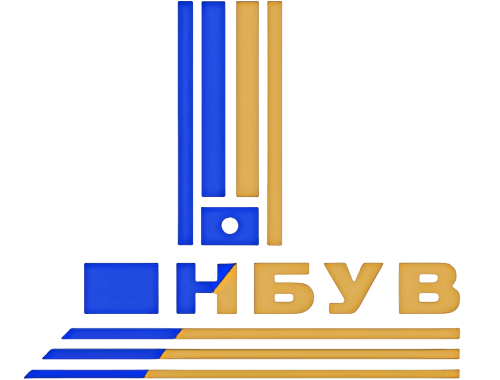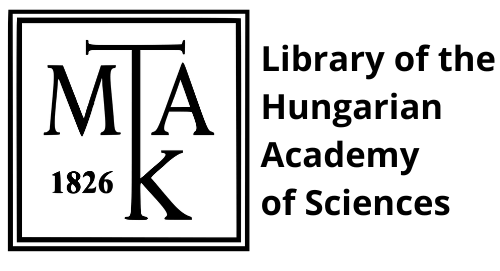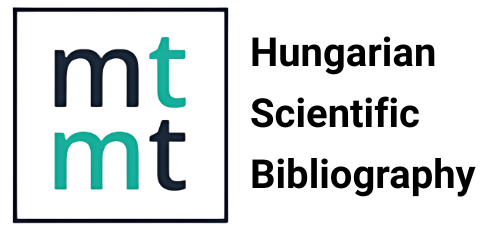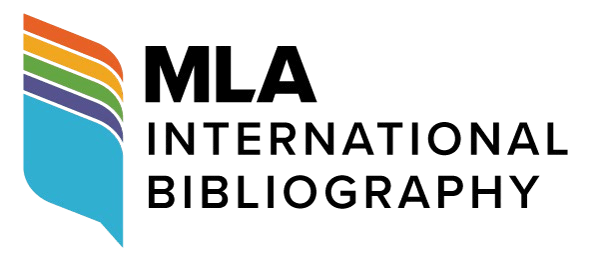The Linguistic and Cultural Concept of WINE in Ukrainian National Linguistic Worldview linguistic picture of the world
DOI:
https://doi.org/10.58423/2786-6726/2024-1-46-62Keywords:
linguistic and cultural concept WINE, gastronomic discourse, name of the concept, paremias, syntagmatic connections, free associative experimentAbstract
The article deals with the research of the concept as one of the key linguistic notions. The characterization of different approaches to the definition of the notion in "concept" is suggested. The role of the concept in the formation of the national conceptual sphere is discussed.
It is noted that the persistent interest of scientists only in certain aspects of the study of the conceptual sphere of "food" necessitates a holistic study of the linguistic and cultural concept of WINE, the study of language units in the synthesis of their semantic and functional specificity, the identification of the peculiarities of the generation of a linguistic sign, as well as the need to outline linguosemiotic and linguocultural of the parameters of the concept, evidenced primarily in literary samples and paremias. The relevance of the chosen topic is determined by the need to expand and significantly deepen knowledge about the linguistic representation of the linguistic and cultural concept WINE in the formation of a model of the Ukrainian mentality, which helps to reveal ways of interaction between the verbal and cultural codes of the nation.
The purpose of the scientific work is to study the linguistic and cultural specificity of the concept of WINE in the Ukrainian National Linguistic Worldview. The essence of the concept of "linguistic and cultural concept" and "gastronomic discourse" was clarified in the studio; the linguistic and cultural content of Ukrainian pairs with the concept of WINE is determined; the syntagmatic relations of the name of the concept were analyzed; the mechanism of respondents’ perception of the WINE concept was investigated.
The authors researche into the concept WINE (vyno) in Ukrainian linguistic worldview. The scientific novelty of the work lies in the fact that it examines the linguistic and cultural concept of WINE in the Ukrainian linguistic picture of the world. In the work, the elucidation of the features of the linguistic and cultural concept and gastronomic discourse was further developed, the linguistic and cultural content of paremy with the concept WINE was determined, and the syntagmatic connections of the name of the concept were investigated.
In the future, we plan to investigate the linguistic and cultural specificity of other concepts related to the gastronomic discourse.
References
, Artyukh, Lidia 1982. Narodne kharchuvannya ukrayintsiv ta rosiyan pivdennoskhidnykh rayoniv Ukrayiny [Folk dishes of Ukrainians and Russians of the southeastern regions of Ukraine]. Kyiv : Naukova dumka (In Ukrainian).
Artyukh, Lidia, 1977. Ukrayins’ka narodna kulinariya [Ukrainian folk cooking]. Kyiv : Naukova dumka (In Ukrainian).
Ganudel, Zuzana, 1981. Linhvistychnyy atlas ukrayins’kykh hovoriv Skhidnoyi Slovachchyny: nazvy strav, posudu i kukhonnoho nachynnya [Linguistic atlas of Ukrainian dialects of Eastern Slovakia: names of dishes, dishes and kitchen utensils]. Pryashiv, t. I (In Ukrainian).
Golubovska, Iryna, 2004. Etnichni osoblyvosti movnykh kartyn svitu [Ethnic features of language pictures of the world]. Kyiv : Logos (In Ukrainian).
Gotsa, Erika, 2001. Nazvy yizhi y kukhonnoho nachynnya v ukrayins’kykh karpats’kykh hovorakh [Names of food and kitchen utensils in Ukrainian Carpathian dialects]: diss Cand. Philol. Sciences: 10.02.01. Uzhhorod (In Ukrainian).
Dzendzelivskyi, Yosyp, 1959. Do pytannya pro madyaryzmy v hovorakh Zakarpats’koyi oblasti (na materialakh Linhvistychnoho atlasu) [On the issue of Magyarisms in the dialects of the Transcarpathian region (based on the materials of the Linguistic Atlas)]. Dopovidi ta povidomlennya UzhDU. Seriya : Filolohiya. No. 2. Uzhgorod,
p. 61–64 (In Ukrainian).
Oskyrko Oleksii, 2018. Nazvy yizhi ta napoiv u skhidnopodilskykh hovirkakh [The names
of food and drinks in the East Podolian dialects] : dys kand. filol. nauk. Uman (In Ukrainian).
Kormochi, Zoltan – Sass, Enikő, 2022. Vyno i bohrach, abo prysutnist’ mov u linhvistychnomu landshafti zakarpats’kykh hastrofestyvaliv [Wine and bograch, or the appearance of languages in the linguistic landscape of Transcarpathian gastronomic festivals]. Movoznavchyy Visnyk, 33, p. 69-84 (In Ukrainian).
Selivanova, Elena, 2000. Kohnytyvnaia onomasyolohiia : monohrafiia [Cognitive onomasiology: monograph]. Kyiv : Fytosotsyotsentr (In Russian).
Selivanova, Olena, 2011. Linhvistychna entsyklopediya [Linguistic encyclopedia]. Poltava : Dovkillya–K (In Ukrainian).
Grinchenko Borys (Ed.), 1958. Slovar’ ukrayins’koyi movy [Dictionary of the Ukrainian language] : u 4-kh tomakh. Kyiv : Publication of the Academy of Sciences of the Ukrainian SSR, t. 1 (In Ukrainian).
Slovnyk ukrayins’koyi movy, 2010 [Dictionary of the Ukrainian language] : u 20 tomakh. https://1677.slovaronline.com (In Ukrainian).
Vinnyk Vasyl (Ed.), 2003. Frazeolohichnyy slovnyk ukrayins’koyi movy, [Phraseological dictionary of the Ukrainian language]. Kyiv : Naukova Dumka (In Ukrainian).
Shytyk, Liudmyla – Yuldashewa, Liudmyla, 2021. Reprezentanty linhvokulturnoho polia KAVA v ukrainskii movi [Representatives of the linguistic and cultural field of COFFEE in the Ukrainian language]. Zaporizki filolohichni chytannia : materialy Vseukrainskoi naukovoi konferentsii (11–12 lystopada 2021 roku). Lviv–Torun : Liha–Pres, s. 148–150. http://catalog.liha-pres.eu/index.php/liha- pres/catalog/book/164 (In Ukrainian).
Shytyk, Liudmyla – Yuldashewa, Liudmyla, 2023. Struktura i motywacja autorskich nazw potraw w powieści Marii Matios "Kulinarne figle" [Structure and motivation of author’s names of dishes in the novel Marii Matios "Kulinarne figle"]. Studia Ukrainica Posnaniensia, vol. 11, c. 1, pp. 97-107 (In Ukrainian).
Yatsenko, Serhii, 2008. Apelyatyvy na poznachennya produktiv kharchuvannya, strav ta napoyiv u roli vlasnykh imen u Kozats’komu Reyestri 1642 roku [Appellations for designation of food products, dishes and drinks as proper names in the Cossack Register of 1642]. Visnyk Zhytomyrs’koho derzhavnoho universytetu imeni Ivana Franka. Zhytomyr, v. 41, pр. 218–221 (In Ukrainian).
Yatsenko, Serhii, 2006. Tradytsiyna narodna yizha yak predmet etnohrafichnoho doslidzhennya [Traditional folk food as a subject of ethnographic research]. http://studentam.net.ua/content/view/7184/97/ (In Ukrainian).
Humboldt, Wilhelm von, 1836. Über die Verschiedenheit des menschielchen Sprachbaues und ihren Einfluss auf die geistige Entwickelung des Menschengeschlechts [About the differences in human language structure and their influence on the intellectual development of the human race]. Berlin : Dümmler XI. https://www.digitale-sammlungen.de/de/view/bsb10904366 (In German).
Lévi-Strauss, Claude, 1975. The Raw and the Cooked. New York : Harper & Row Publishers (In English).
Wierzbicka, Anna, 1992. Semantics, Culture and cognition: Universal human concepts in culture-specific configurations. Oxford & New York : Oxford University Press (In English).
Downloads
Published
How to Cite
Issue
Section
License
Authors retain copyright and grant the journal the right of first publication. The work is simultaneously licensed under a Creative Commons Attribution 4.0 International License (CC BY 4.0), which permits others to share the work with appropriate credit given to the author(s) and the initial publication in this journal.

